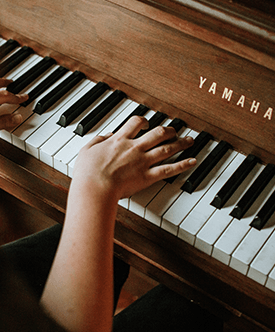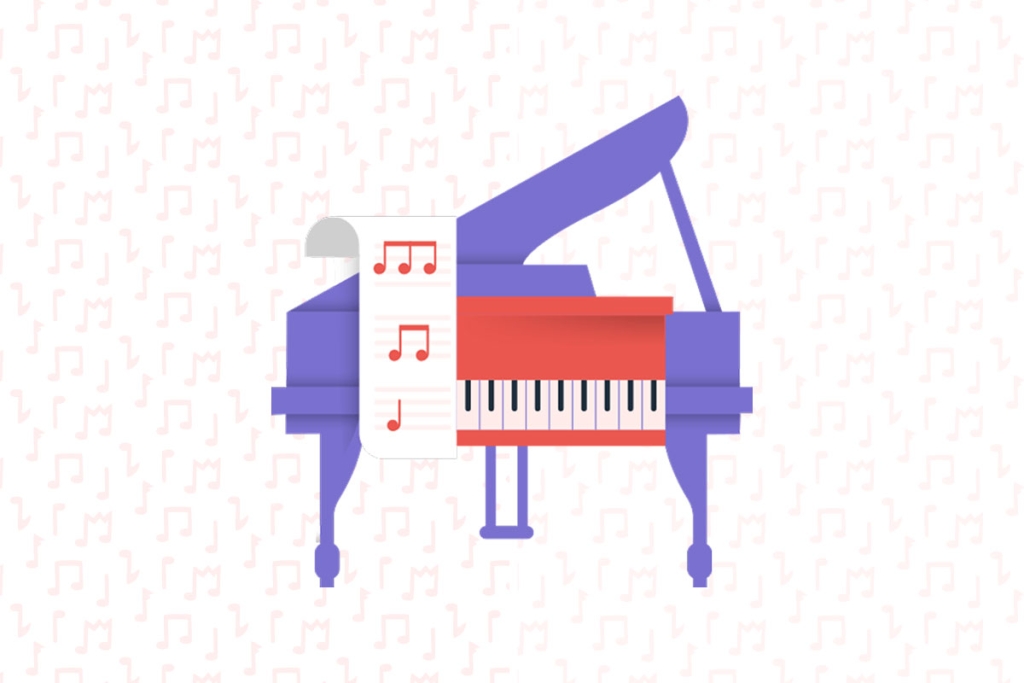Learning to play piano can be a rewarding pursuit, providing a means of creative expression and an opportunity to engage with the timeless language of music. The piano is a highly versatile instrument, offering a wide range of tones, dynamics, and harmonic richness.
That said, it is important for beginners to be mindful of common missteps that can hinder their progress. Ignoring or failing to correct these errors can prolong the learning process or instill improper playing habits. Below are some of the most frequently encountered mistakes beginner pianists make and how to avoid them.
1) Prioritize Proper Hand Placement
Beginners often overlook the significance of proper hand positioning, which can greatly impact their technique and increase the risk of injury.
To ensure a solid foundation, it is important to maintain a professional approach to hand positioning, including curved hands, relaxed fingers, and flexible yet stable wrists.
Additionally, maintaining a suitable sitting position, with a straight back and feet flat on the floor or pedal, is crucial for preventing discomfort and promoting smooth performance.
By prioritizing these basic techniques, beginners can establish a strong foundation for continued improvement and success.
2) limiting practice to only ‘playing’
As a beginner, it is important to understand that practicing the piano entails more than just playing.
While playing is certainly a valuable aspect of learning, it is equally important to set aside dedicated time for reading sheet music, practicing rhythm exercises, and studying music theory.
By incorporating a well-rounded routine, beginners can significantly improve their technical proficiency and musical understanding.

3) neglecting the importance of scales
Practicing scales is an essential step for any pianist looking to improve their finger agility, precision, speed and understanding of different musical keys.
Whilst it may seem tedious at first, the value that mastering scales brings to playing the piano is unrivalled.
As a professional, it is important to understand the significance of proper scale practice and not bypass it in favor of jumping straight into pieces.

4) playing too fast, too soon
Starting slowly and mastering each bar at a comfortable speed is the key to playing with confidence.
Rushing through a piece before you're ready often leads to missed notes and incorrect rhythm.
By taking your time and using a metronome, you can ensure consistent playing and build your skills with ease.
6) focusing solely on one hand at a time
Playing piano requires proficiently playing both the right-hand (melody) and left-hand (accompaniment) parts.
Many beginners tend to practice one hand at a time, neglecting the importance of practicing with both hands together.
While it is helpful to practice hands separately initially, it is equally crucial to practice playing with both hands simultaneously.
This balance helps develop coordination and a comprehensive understanding of the piece.
5) playing with stiffness and tension
Novice pianists may exhibit surplus tension caused by eagerness or anxiety.
Such behavior can result in playing with stiff fingers, raised shoulders, or a clenched jaw, which limits dexterity and contributes to physical discomfort or injury.
Strategies to address this challenge include adopting good posture, maintaining a relaxed yet firm grip, and taking frequent breaks during practice sessions.
7) ignoring musicality and emotion
As a professional, it is important to recognize the emotional depth of the piano and its music.
While beginners may initially focus on technical accuracy, it is crucial to also consider the emotional and expressive elements of the pieces they practice.
By understanding the dynamics, articulations, and intended emotions of a musical composition, beginners can perform it with greater nuance and emotional richness.

and most importantly – remember, do not worry & enjoy learning to play the piano!
Becoming a skilled pianist can pose challenges to a novice.
However, recognizing these common pitfalls helps to ease the learning process and transform mistakes into valuable learning opportunities.
To prevent these mistakes, it's essential to exhibit patience, practice regularly, employ proper techniques, and heighten your love for music.
Remember, the journey of mastering a musical instrument like the piano is not solely about reaching the final destination.
It's about the beautiful process of achieving it by mastering each note and melody, thereby bringing together not just the composition but also your unique musical expression.
So keep playing with the melodious tunes of love, perseverance, and growth that define your piano-learning expedition.
If you aspire to initiate piano lessons for true mastery, please contact us.


